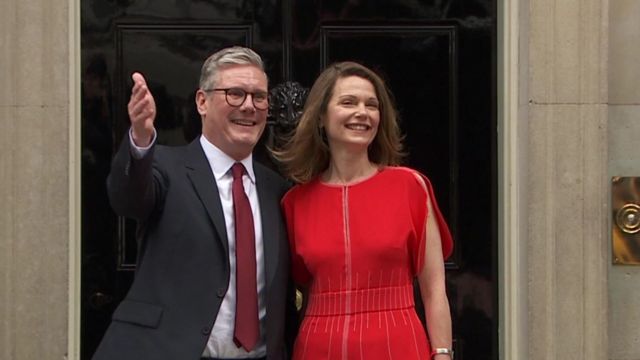Keir Starmer has declared it is "time for a reset" as he assumes office as the new Prime Minister of the United Kingdom.
Following a decisive victory for the Labour Party, Starmer pledged to navigate the nation towards "calmer waters" and emphasized that his government would serve all citizens, regardless of their political affiliation. His win marks the end of 14 years of Conservative rule, promising a new chapter of national renewal and rebuilding.
In his victory speech, Starmer stated, "Change begins now. We said we would end the chaos, and we will. We said we would turn the page, and we have. Today, we start the next chapter, begin the work of change, the mission of national renewal and start to rebuild our country." He assured the public that his administration would prioritize the country over party politics, aiming to demonstrate that politics can be a force for good.
Starmer's victory came as the Labour Party secured a massive majority in the 650-seat parliament, dealing a historic defeat to Rishi Sunak’s Conservatives. Voters punished the Conservatives for a cost-of-living crisis, failing public services, and numerous scandals. Sunak conceded defeat and congratulated Starmer, acknowledging the need for reflection within his party.
Despite the comprehensive win, polls indicate that enthusiasm for Starmer and his party remains lukewarm. He inherits a nation grappling with significant challenges, including a high tax burden, substantial national debt, declining living standards, and strained public services, particularly the National Health Service. Addressing these issues will require hard work and immediate action, Starmer admitted.
The election also saw the rise of the right-wing populist Reform UK party, led by Brexit campaigner Nigel Farage, which captured four seats and garnered more votes than the Conservatives in several areas. Farage's success has sparked a debate within the Conservative Party about its future direction, with some arguing that the party has strayed from its roots.
Starmer has committed to improving relations with the European Union to resolve post-Brexit issues, though rejoining the EU is not on the agenda. He also pledged to continue the UK's support for Ukraine in its conflict with Russia, maintaining a similar stance to Sunak on many foreign policy matters.
The Labour Party's victory represents a remarkable turnaround from its near-crisis state three years ago. Conservative scandals, including the notorious Downing Street parties during COVID lockdowns, significantly damaged the party’s credibility.
The brief and turbulent premiership of Liz Truss further cemented the decline, leaving Sunak to bear the brunt of the fallout.



























